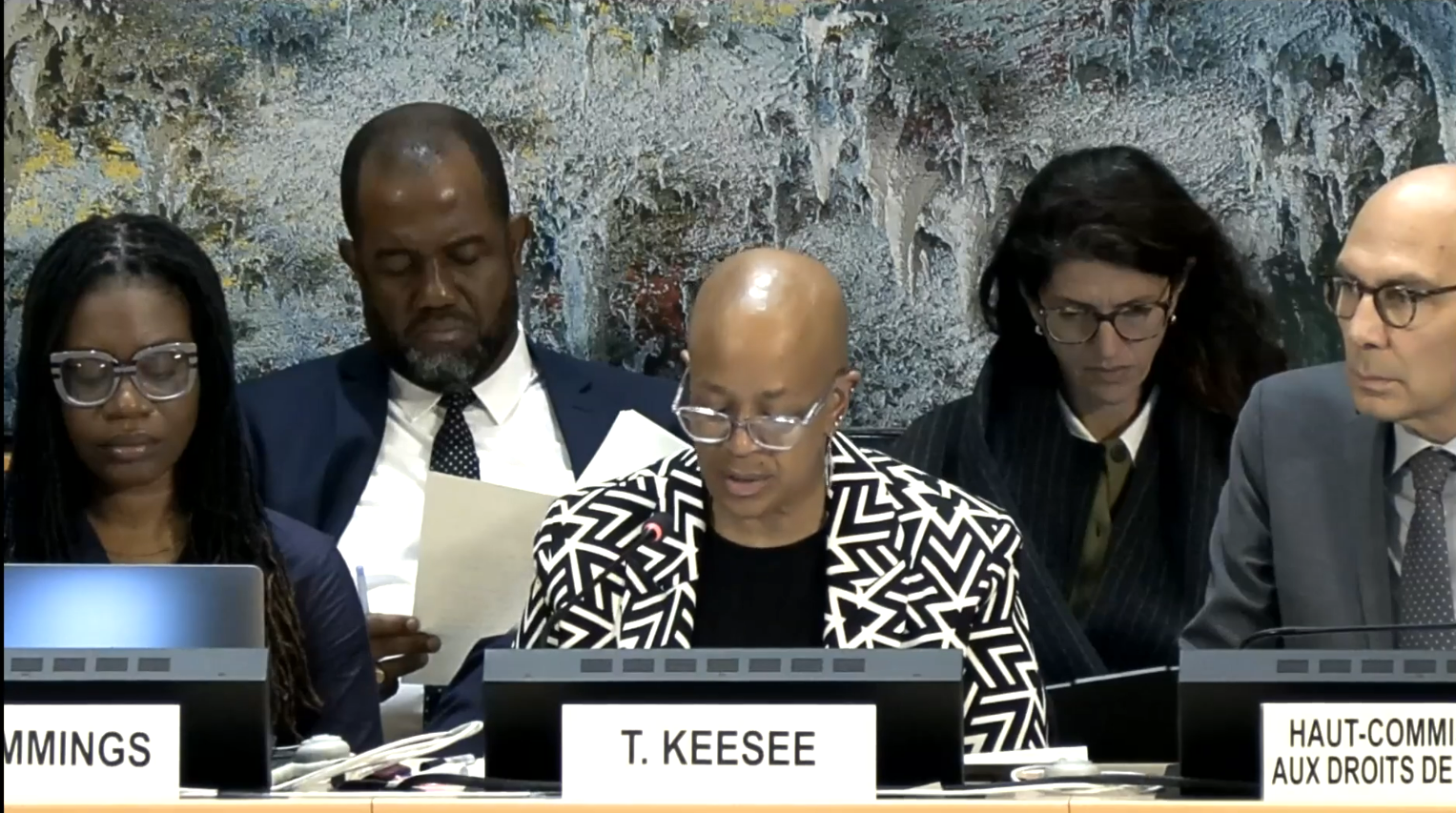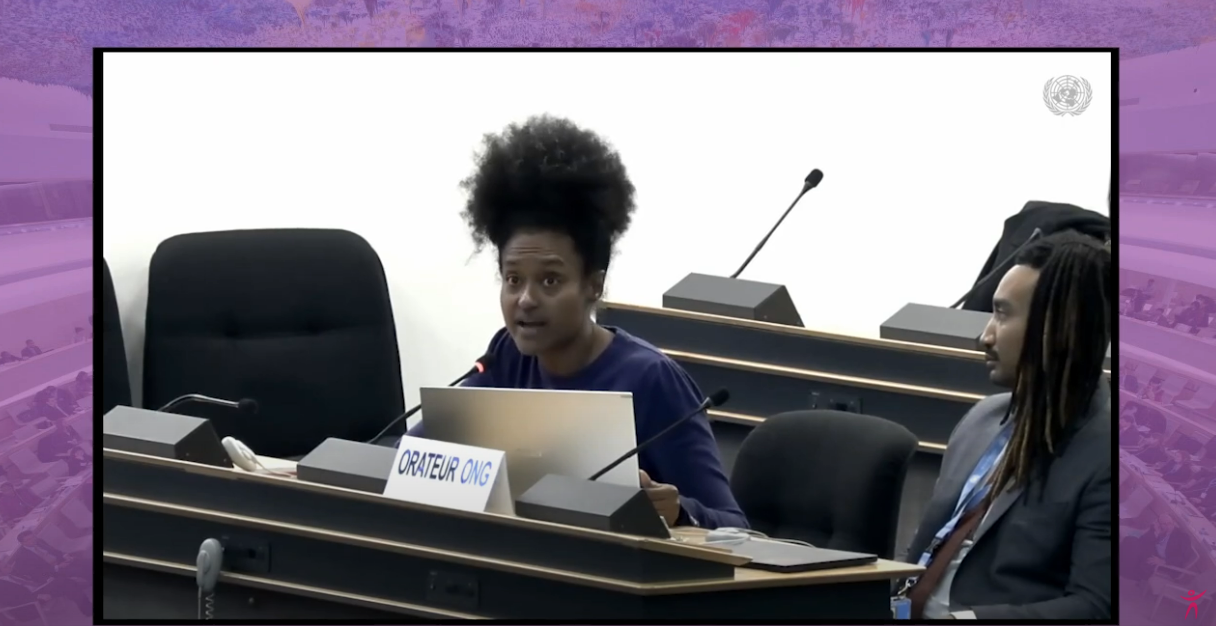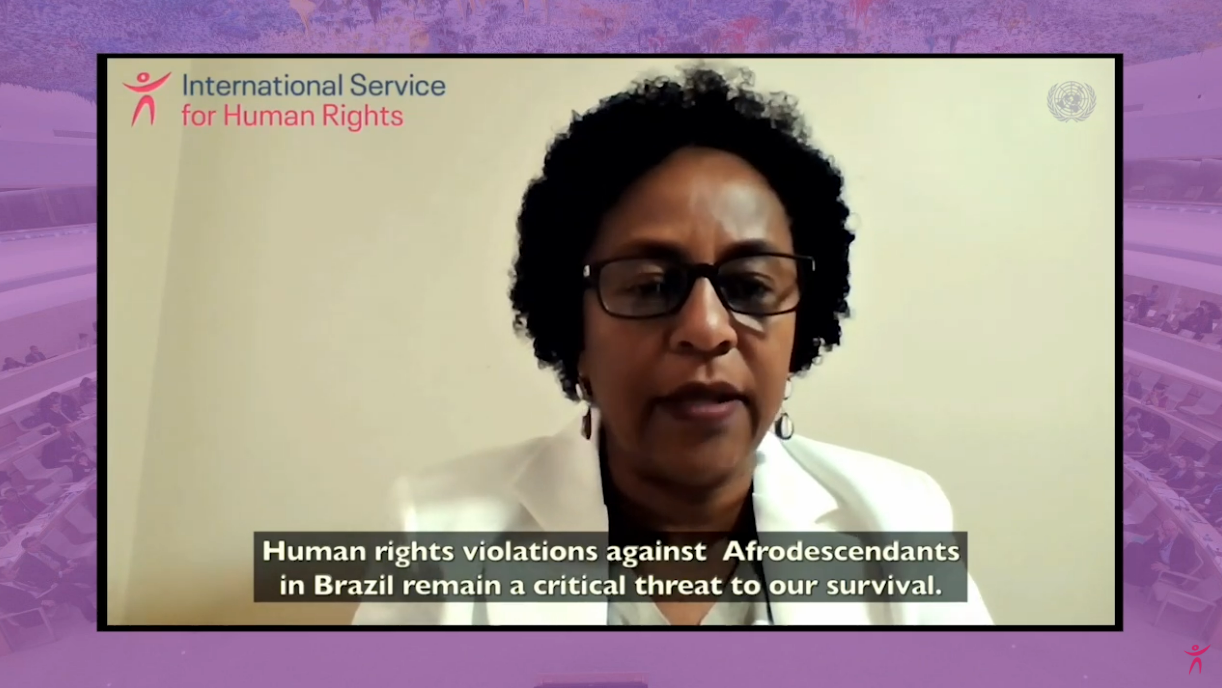
Racial discrimination permeates all layers of the criminal justice system
UN report sheds light on procedural shortcomings in criminal proceedings against African and Afrodescendants.

At HRC49, ISHR and Global Black called on States to expose and oppose laws that curtail the ability to address racism and encourage countries to embrace history and data as evidence of a true commitment to build societies that are more just and equitable.
On 28 March 2022, the Human Rights Council held the panel discussion on racial discrimination, in commemoration of the International Day for the Elimination of Racial Discrimination, based on the theme, “Voices for Action Against Racism.” In her speech, UN Human Rights Commissioner, Michelle Bachalet, celebrated the voices fighting against racism, racial discrimination, xenophobia and related intolerance. Together with other panelists like Manjusha Kulkarni, Mary Kluk and Lucia Xavier, she expressed the concern for the still widely spread culture of racism, hate speech and xenophobia that are still faced by people of African descent, Asian descent, ethnic minorities and indigenous tribes among others.
Several States such as Finland, Cuba, Pakistan and Brazil urged all States to take a decisive and shared pursuit on policy, cultural and personal levels in order to reach a world free of racism where human rights are insured for all and no one is left behind. Haiti expressed the affirmation of commitment of Carricom, an Afro Caribbean alliance, to adhere to the Durban Declaration and its programme of action, and reiterate their solidarity in fighting against discrimination in all its forms.
ISHR and Global Black made a joint statement during the panel, delivered by Amara Enyia.
“I serve as the Founder and President of Global Black, a transnational organisation working to build power for Black people around the world. I also serve as Chairwoman of the International Working Group for the Permanent Forum on People of African Descent and serve as the Manager for Policy and Research for the Movement for Black Lives. The theme for this session” Voices for Action Against Racism” is especially pertinent regarding a troubling phenomenon consisting of efforts to erase history and the teaching of history from the public sphere. Thank you, President, for the opportunity to provide critical input on the Voices for Action Against Racism theme and panel for the HRC session.
Of particular concern in this moment are efforts to curtail the teaching of history and the ways in which systemic and structural racism have shaped society. It is only by acknowledging and teaching accurate history, which requires acknowledging and amplifying the voices and experiences of racialized peoples, that we can address the present impact of racism, which manifests in the racial wealth gap, public health disparities, environmental challenges, and other indicators that evidence how a history of de facto and de jure racism have harmed society as a whole. Over the couple of years, there has been a tremendous effort to curtail and even erase history by launching a culture war against Critical Race Theory in schools. Critical Race Theory is an analytical tool for unearthing and interrogating the pervasiveness of systemic racism and the myriad ways it is embedded in society, institutional policies, processes and practices. As a discipline, Critical Race Theory is taught in law schools.
However, in the public discourse, Critical Race Theory is being conflated with history. This intentional obfuscation has created a pathway for law makers to attempt to pass laws that would limit any and all lessons and materials that deal with race. In some states, law makers have advanced legislation prohibiting classroom instruction that could make students “feel discomfort, guilt, anguish or any other form of psychological distress because of the individual’s race, ethnicity or biological sex. Complaints have been filed against some teachers while others are afraid disciplinary measures will be taken due to the broad language of these laws. So far, 174 similar bills have been introduced across 38 states in the U.S. since the beginning of the year.
These developments are especially troubling and it is important to put them in broader context. It is important to track and challenge the ways in which states – via legislation – could move to curtail information and access to information – even criminalizing the teaching of history – to avoid dealing with the present realities of societies that continue to marginalize racialized people. These laws and the strategies used to advance this insidious agenda can be replicated in any country context. This should be of grave concern around the world where history and data are critical to making the case for changes in structures and policies to address racism and its impacts.
The best way to eliminate racism is by acknowledging the impact of racism on racialized people– particularly how it is embedded in the systems and structures that govern our lives. This is the only way to dismantle problematic structures, institutions and policies that have harmed racialized people.
We call on States to expose and oppose laws that curtail the ability to address racism and encourage countries to embrace history and data as evidence of a true commitment to build societies that are more just and equitable.”

UN report sheds light on procedural shortcomings in criminal proceedings against African and Afrodescendants.

The Office of the High Commissioner for Human Rights (OHCHR)'s report on reparatory justice recognises that reparations are necessary to dismantle systemic racism.

In the context of the presentation of a UN report on reparations, ISHR and Coalizão Negra por Direitos (CND) issued a joint statement urging States to fully implement the Durban Declaration and Programme of Action (DDPA), the UN’s blueprint to combat racism, racial discrimination, xenophobia and related intolerance globally.